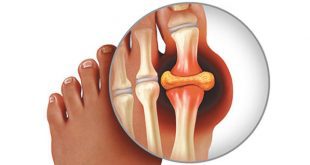By Hedy Setyadi, MD, FAAD, Board-Certified Dermatologist


What to use for minor scrapes and scratches
Consider this: Over-the-Counter (OTC) topical antibiotics (for example those that contain neomycin, bacitracin, or polymyxin B) have a common possible side effect of allergic reactions, such as itchy rashes or even worse. For routine, non-infected minor scrapes and scratches, dermatologists tend to advise using basic ointments such as Vaseline or its generic equivalent. Yes, that is the petroleum jelly that has been widely used since the 1800s! For those who are not in favor of Vaseline/petroleum jelly, Vaniply Ointment is a great alternative.
The above options help non-infected skin to heal faster than if it were left to heal on its own, and not any slower than when topical antibiotics are used. Do not forget to wash the area with soap and water once to twice daily and cover with bandage. Of course, seek immediate medical attention if you notice any concerning signs such as pain, redness, pus, swelling, warmth, or fever, which may indicate infection. Of note, if you have any non-healing lesion, make sure to see your board-certified dermatologist, as skin cancers may sometimes present as such.
For hand and body moisturizers, forget lotions…
… but use creams or ointments instead, as they lock in more moisture than lotions. Ointments such as Vaseline, Aquaphor or Vaniply Ointment are the most moisturizing but may feel too greasy for some people. If this is not ideal for you, creams such as Cetaphil, Eucerin, or Aveeno fragrance-free creams are also good. These creams come in a tub or a tube, not a pump bottle. If it comes in a pump (i.e. lotion), it contains a lot of water as opposed to oil. As a result, the moisture will not last as long after you put it on your skin.
The above tips are even more important if you have dry or eczema-prone skin. The best time to apply your moisturizer is right after showers/baths, preferably routinely once to twice daily. (While we are on this topic, try to avoid hot showers/baths as they dry the skin even more; warm or lukewarm is better.)
For those of us who happen to have dry skin, our skin may feel not only dry, but also itchy if we skip this routine. This becomes more important as we age, due to the increasingly drier skin. For those of you who have eczema-prone skin, routine moisturization of skin is essential, as dry skin may trigger that miserable eczema flare.
By the way, drinking adequate water is great for your health, but it does not moisturize the skin. Therefore, contrary to what some people may think, one cannot drink water as a substitute for actually moisturizing the skin.
Oh baby!
Sometimes you may encounter OTC personal care products (such as body moisturizers) of the same brand that have two versions of the same product— one for babies and one for general (adult) use. This may surprise you, but in this case the baby version:
• May be the exact same product as its adult counterpart, but is sold for more money on a per-ounce basis. (Think marketing strategy!)
• May have the same ingredients as its adult counterpart, except for addition of fragrance/baby scent. (This may seem counterintuitive at first, but makes sense if you think about it— again, marketing!)
The key, when you see such products of the same brand, is to compare and contrast their list of ingredients. Do not forget to do so before you reflexively reach for the “baby” version for your little one. You may be surprised!
Know the distinction of “fragrance free” vs. “unscented”
“Fragrance free” means that the product is free of fragrances or masking scents. On the other hand, “unscented” means that the product may have scents/fragrances added to mask or neutralize the original scents of the product ingredients. We will talk more about fragrance free products a bit later.
“Natural” does not mean “no allergens”, and
“hypoallergenic” does not mean much
If you have experienced having allergic reactions to personal products in the form of itchy rashes—what is usually called “allergic contact dermatitis” (ACD), you may be looking to substitute your products to those that do not trigger a rash. Keep in mind a few things that may make this process even more complicated:
• Unfortunately, just because you only use natural products, it does not mean that they would not contain any allergens. An extreme illustration that usually makes immediate sense to people is that poison ivy is natural, but it is a well-known highly allergenic material.
• Products that are labeled “hypoallergenic” may be so for some people, but not for others. This is because there are no standards or studies required for a manufacturer in order to label its products “hypoallergenic”. I often see products with such labels that contain common allergens.
• Even baby products may have common allergens. For example, baby wipes (yes, even the “hypoallergenic” ones!) are notorious for having preservatives that are well-known allergens. A much better alternative is to stock up on dry, chemical-free soft wipes that you wet with water right before using, for any age group.
• Just because you have used a given product for a very long time (even for decades!), it does not mean that you cannot be allergic to it. To the contrary, the more you use a given product/ingredient, the higher possibility you may eventually develop an allergy to it. Those who have contact allergy tend to be sensitive to multiple ingredients/allergens.
• Ingredients of a given personal product may change at any time, even though the label may look the same to you (until you read the list of ingredients closely).
It is good practice to use “free and clear” detergents and dryer sheets, as they are free of fragrances and dyes, which are common allergens. The “free and clear” products are available in various brands, such as Tide, All, Seventh Generation and others. Similarly, if you may have ACD, it would be a good idea to use fragrance-free personal care products for soaps, moisturizers, and others.
The tricky part is to find what ingredients you may be allergic to, and avoid them entirely. Even an infrequent exposure to the culprit would re-trigger the reaction. I suggest that you consult your board-
certified dermatologist for diagnosis and treatment, as itchy rashes can be caused by a myriad of different reasons, and may not end up being an ACD. If ACD is suspected, some dermatologists may offer patch testing to try to identify your contact allergens
to help you know what to avoid. There is no “magic bullet” and these cases may be difficult to manage. No test is perfect. There is also going to be work involved on your part in avoiding the allergens once identified. However, as those who have this problem can attest, even some improvement when you have been itching is better than nothing at all!
Last but not least, do not forget one of the most important skin products: sunscreen!
Sunscreen and healthy sun protection habits are essential for your health and maintenance of your skin. See the link below for my other article at the Charlotte Edition of the Health and Wellness Magazine about sunscreen and healthy sun protection habits, while debunking myths about skin health related to sun exposure.
https://swfhealthandwellness.com/common-myths-skin-health-debunked/
As a board-certified dermatologist, one of my missions is to educate everyone that I come across about skin health. Please make sure to check out another article where I reviewed frequently asked questions about skin cancer screenings.
https://swfhealthandwellness.com/dermatologist-skin-cancer-screenings/
This current article and the articles mentioned above are intended for informational use only, and are not for purposes of constituting a physician-patient relationship or providing medical advice. Since individuals and cases may vary, see your board-certified dermatologist for all of your respective skin care needs.
Associates in Dermatology
239.936.5425
www.associatesinderm.com
 Southwest Florida's Health and Wellness Magazine Health and Wellness Articles
Southwest Florida's Health and Wellness Magazine Health and Wellness Articles

